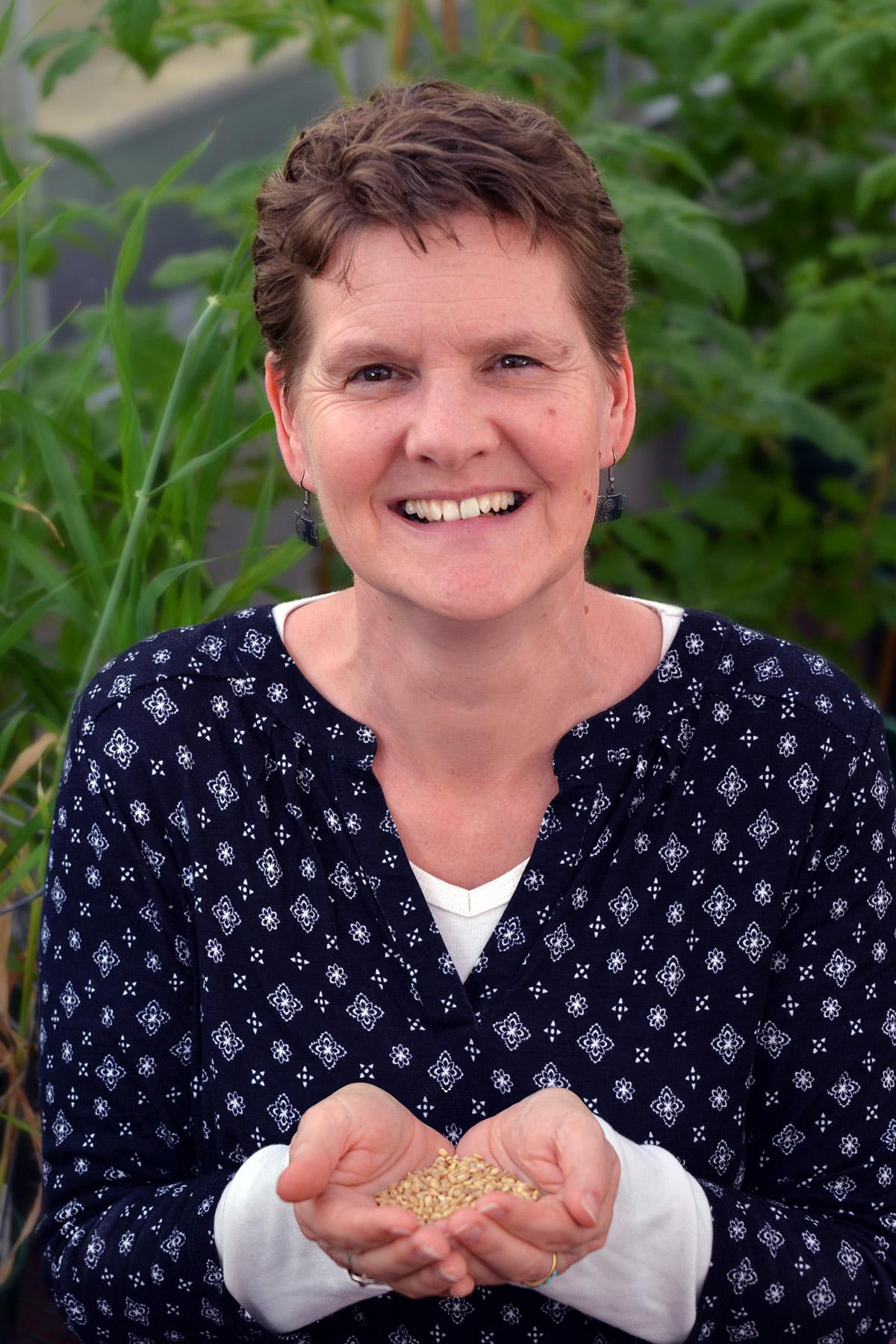Working with plants can help you both to grow
Professor Rachel Burton was born and educated to PhD level in the UK and moved to Australia for her second post doctorate.
The opportunity to work with plants wasn’t something that happened immediately for her. In fact, she says her undergraduate pathway was rather muddled.
For a year after she left school she worked as a lab assistant at the Rothamsted Experimental Station. She says it was the most fantastic life-changing experience.
This is where she was first properly exposed to research and realised that it was something she would love to do. She was 18 and her boss was doing cutting edge work in DNA and molecular biology and soil microbes. She ran her first DNA gel working there and experienced one of the most pivotal moments of her career when her boss walked into the lab one day and handed her a brown paper bag full of carrots inside. It was from these carrots that she learnt how to make sterile hairy root cultures!
Rachel then went to Aberdeen University to do Biology, but she wasn’t happy. So, she moved to Bristol University and ended up doing a degree in medical microbiology which seemed to make sense given all her soil and microbial work at the Rothamsted Experimental Station. But her love of plants proved impossible to deny.
The lack of plant matter in her life was finally fixed by doing a PhD at the John Innes Centre, surrounded by plants and amazing plant scientists!
She came to Adelaide on a four-year contract with The Grains Research and Development Corporation (GRDC) and has never left.
She was on what she calls soft money for many years (that is, no tenure or what we now call a continuing position) and that was very stressful at times. In addition, life as a female academic came with its own challenges. It has driven her to set a completely different culture where everyone is supported and mentored and opportunities for better visibility are actively realised.
All the challenges aside, Rachel worked her way through the system and is now Head of the Food Science Department in the School of Agriculture, Food and Wine.
Rachel has worked on polysaccharides for a long time, starting with starch in peas and potatoes and then a shift to cellulose and plant cell walls when in Adelaide.
Most projects involved cereals, especially barley, but then she started to get interested in more unusual crop plants including Plantago (psyllium), agave and industrial hemp. The polysaccharides are still central – they are so important for human health as dietary fibre and as feedstocks for renewable materials – but she is working towards helping to establish these novel crops in mainstream agriculture.
Industrial hemp, for example, has massive potential as a sustainable crop with a multitude of uses and Rachel says it’s very exciting and satisfying to be at the leading edge of something.
What does she love about working in STEM?
STEM is varied and exciting – you never know what’s around the corner! I absolutely love that no two working days are the same and you are constantly questioning and learning new things. I also really enjoy being able to link parts of our work together to find the synergy between projects. Often this is the key to making them more relevant to real world situations and there is something so satisfying about taking a novel approach to something and then seeing it work out.
I really appreciate the industry partners I get to meet and work with along the way. New introductions are constant and being able to form a network with passionate and clever people that help to get what we find in the lab out into the real world is the best feeling.
If she could give her younger self some advice, what might she say?
Don’t worry too much about decisions – it’s better to make one and move on than be frozen in indecision and the key factor is to choose what you love doing. I have also learnt that almost everything, apart from having kids, is reversible!
Is there a personal or professional training opportunity that she would love to undertake?
I have been very fortunate to have taken part in some life-changing professional training opportunities – these have had impact both at work and at home. The thing I would really enjoy now is to learn to sing properly!
What is something she is proud to have achieved in her career or life?
I am really proud to be able to support the next generation of scientists and to see that I have helped them develop, grow in confidence and then go out into the workplace to follow successful and fulfilling careers. Students from my group are all over the world now, doing all sorts of wonderful things.
In the same way, I am proud that I have two well balanced and happy kids, adults now, who survived being raised by two working parents (with an amicable divorce in the middle of it all) and I’m excited to see what they do with their careers too.
How does she spend her spare time? What are her favourite hobbies, or favourite ways to unwind?
As if I don’t get enough of plants at work, I am a mad keen gardener and grow lots of fruit and veggies. I also love fishing. Both are quite meditative activities, demanding focus in the moment which is a good way to unwind and take your mind off the workplace for a while.
The plant world would be thankful Rachel found them again, just as we are thankful for the exciting research discoveries that she is making about their use both now and into the future.

